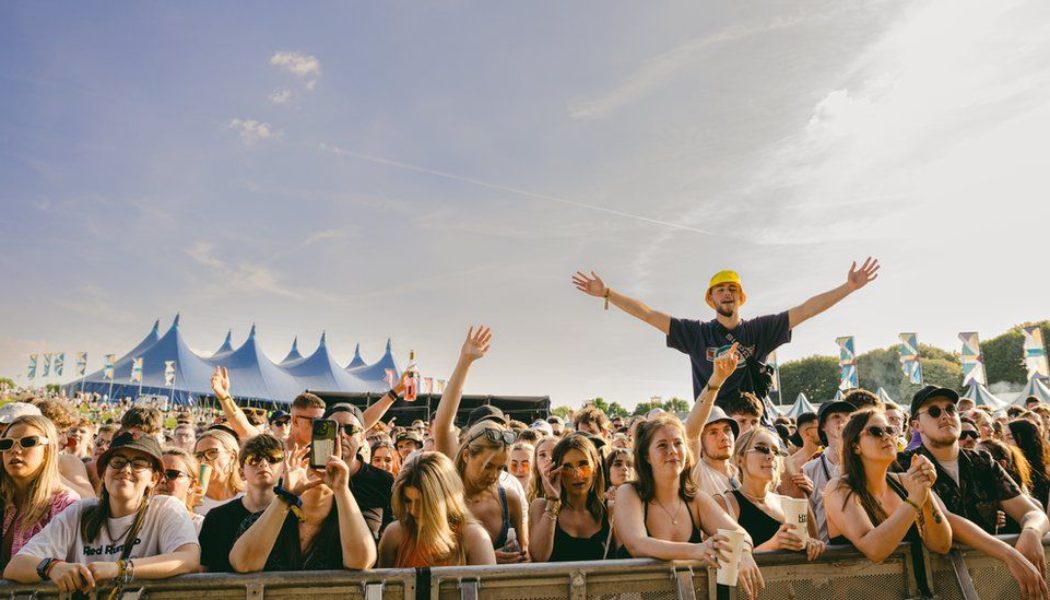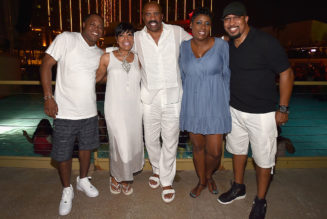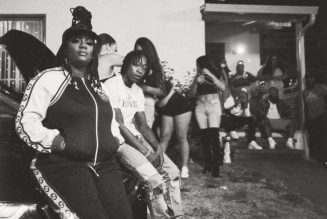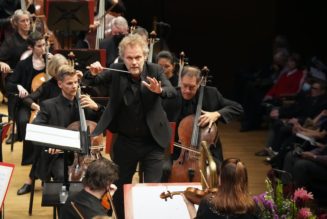
Everyone who has been to one remembers their first music festival: from a post-exams celebration with friends at Reading and Leeds to seeing their guitar heroes headline Download as fireworks light up the night sky.
But a new study has found one in six UK music festivals has disappeared as a result of the Covid pandemic, with the cost of living crisis also placing an unprecedented strain on those still running.
As more than 200,000 festival-goers arrive in Somerset for Glastonbury, the UK’s biggest festival, the BBC has spoken to some of those running much smaller events to hear about the challenges they face in difficult times.

“Running a festival is a very risky, stressful world to be involved in,” says John Rostron, chief executive officer of the Association of Independent Festivals (AIF).
“This is their life, so everything rests on the event being successful.”
In its study, the AIF, a not-for-profit trade association representing 105 events across the country, has found that while there were 600 UK music festivals in 2019, under 500 remain just a few years later in 2023.
“If you look at the 20 festivals that have cancelled this year, three quarters have cited the high running costs as the reason for their failure,” Mr Rostron says.
“Production costs are easily up 30% on average compared to 2019 prices. Some areas have seen a rise of up to 80%.”
Unsurprisingly, perhaps, the biggest price rises have been in the cost of energy and fuel, Mr Rostron adds.
“Obviously members of the public understand what that is like as they’ve seen it double at home,” he says.
Meanwhile, the AIF says supply chain issues have been exacerbated by inflation, with prices rocketing for festival essentials like fencing, staging and lighting.
The Covid pandemic and Brexit have also impacted the number of people who can be recruited for key roles, including security, further pushing up prices, Mr Rostron says.
In light of this bleak outlook, the AIF has called on the government to support the remaining festival operators in order to help rebuild the sector.
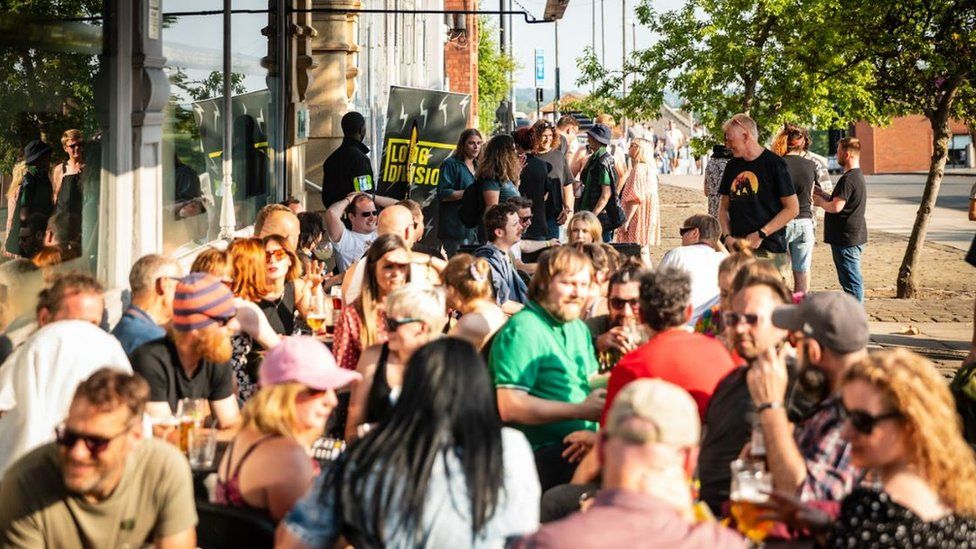
One of the festivals whose organisers have recently called it a day is Long Division, an annual multi-venue indoor event in Wakefield which has brought big names and emerging artists to the West Yorkshire city for the past 12 years.
The final Long Division festival was held on 10 June.
In an announcement back in January, its organisers said the demise of Long Division was down to “money, Brexit, Covid and the cost of living crisis”.
“In the times we’re living in, there’s no final nail in the coffin, it’s just a slow squeeze,” says Long Division director Dean Freeman.
“We stepped back and decided, this isn’t feasible any more and if we don’t get off this conveyer belt, the quality of what we do is going to get worse.”
The last Long Division sold out, with the festival regularly attracting about 4,000 gig-goers to its all-dayer alongside its fringe events and music education programmes.
Mr Freeman, who grew up in Wakefield but recently left the city to run a bookshop in Scotland, adds: “Production costs have gone through the roof and people are just trying to survive. It’s really grim.”

Of course, rising costs have to be passed on to festival-goers, with Glastonbury’s £340 ticket price for 2023 drawing some attention despite the famous event selling out in a matter of minutes.
The live music industry has also asked the government to reinstate a 5% VAT rate on tickets, which was originally put in place during the pandemic and which compares to the standard 20% rate, to help lower fees.
Oliver Jones, who runs the Deer Shed Festival in Thirsk, North Yorkshire, alongside partner Kate Webster, says setting a fair ticket price amid the economic gloom has been a tricky task.
The family arts festival, which is held in late July and blends music, comedy and child-friendly activities, has set its price at between £150-£200 depending on how early the ticket is purchased.
“We’re very conscious about how our ticket looks. It didn’t look as expensive in August last year,” says Mr Jones.
“It’s hard to reduce the price of tickets without slashing the event to bits.”
But many festivals have reported a change in consumer habits post-Covid, with tickets often being purchased a couple of weeks before the event, rather than months in advance as used to be the case.
“It makes planning really difficult as you’ve no idea what your final numbers are going to be,” Mr Jones says.
Discussing the changing budgets of festival-goers, he adds: “If you’ve got a mortgage or you pay for gas, all of a sudden that £1,000 you may have had left over for a festival has just gone.
“If you previously did three festivals a year, you probably only do one now. If you only did one, you now might not even do that.”
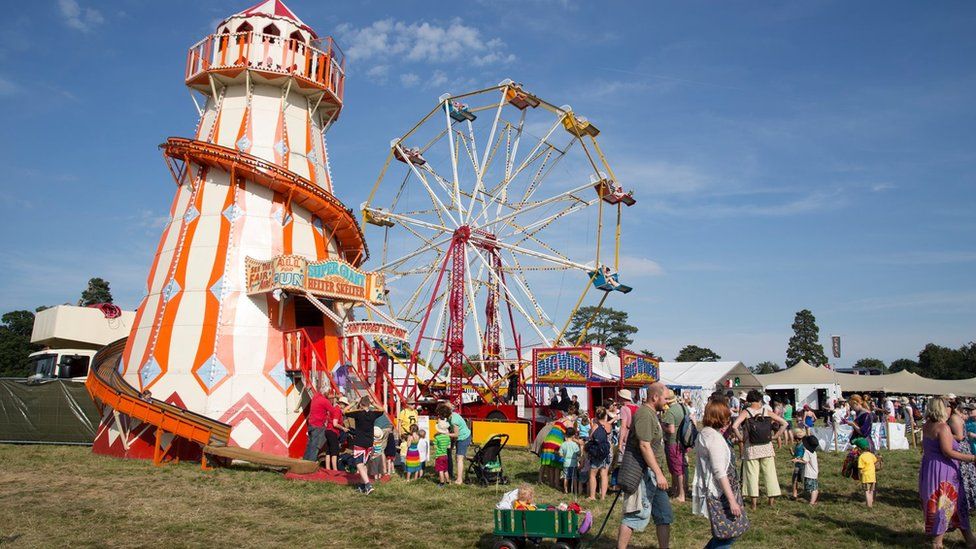
With concerns rising about festivals pricing out the younger music fans who may miss out on formative experiences, the AIF has stepped in and launched its “First Festival” campaign.
The crowdfunding scheme aims to release £18 festival tickets when targets are reached.
According to the AIF, while France, Germany and Spain all offer “culture passes” and vouchers for young people to spend on events when they turn 18, young people in the UK are being priced out.
AIF boss John Rostron says: “People go to their first festival at 16 to 18 years old, it’s a rite of passage.
“You might have your first drink, maybe your first kiss. There should be no barriers to being able to do it.”
‘Interesting time’
But despite the outlook across the music festivals industry, some event organisers are attempting to enter the market even though it is arguably the toughest time in decades.
Live at Leeds in the Park is only in its second year, with the one-day event in late May featuring artists including Two Door Cinema Club, The Hives and Kate Nash.
“It’s an interesting time to try to navigate it, but generally it seems to be positive,” says event promoter Joe Hubbard.
“If we can make it work at this time, then we’re probably on to a winner in future.”
The event is a spin-off from the Live at Leeds multi-venue all-dayer which has previously showcased acts such as Stormzy, Ed Sheeran, The 1975 and The Staves over its 15-year history.

Those behind the new festival at Temple Newsam Park say they have reduced costs by sharing infrastructure with other one-day events taking place at the same site over the same weekend.
“There’s a lot more cost running a multi-day event, particularly as you’re running a campsite on top of your festival,” says Mr Hubbard.
“It’s a more manageable budget doing a single day.”
Mr Hubbard says their efforts to make the 15,000-capacity event as affordable as possible have helped to attract a younger age demographic than the inner-city Live at Leeds festival.
“We offer payment plans of less than a tenner a month, which can help with the cost of living and gives us an earlier idea of how many people will be on the site from a planning point of view,” he says.
While these may be difficult times for festivals – both for their promoters and the fans who go along to them – Mr Rostron, from the AIF, says he remains full of admiration for those who run the events.
“They put a huge risk upon their shoulders and they do it for love,” he says.
“They love music, they love where they live and they love bringing people together.”
A government spokesperson said: “We have invested millions to support festivals during challenging times, including through the £1.57bn culture recovery fund and £18bn energy bills support scheme, so they remain a vital part of the British cultural landscape.
“We continue to work closely with the live music sector to understand the issues facing festivals.”

Follow BBC Yorkshire on Facebook, Twitter and Instagram. Send your story ideas to yorkslincs.news@bbc.co.uk.
